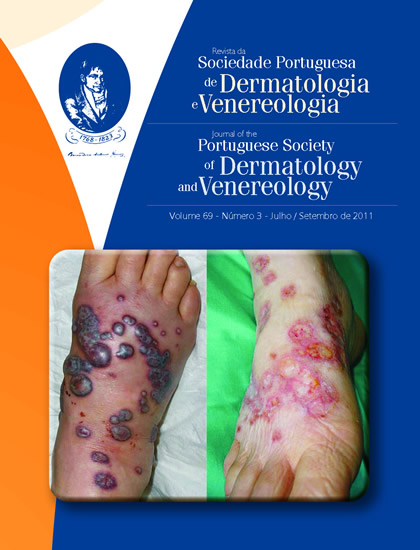PROLIDASE DEFICIENCY – A RARE CAUSE OF LEG ULCERS IN PEDIATRIC AGE
Abstract
Prolidase deficiency is a rare, autosomal recessive disease resulting from a mutation of the prolidase gene (PEPD) located on chromosome 19. The deficiency of this enzyme impairs proline recycling and consequently the synthesis of collagen. This defect may be asymptomatic or associated with different clinical manifestations, being the most frequently reported chronic skin ulcers, recurrent infections, hepatosplenomegaly, mental retardation and a cha- racteristic facies, which commonly emerge during pediatric age. The authors describe a case of a 14-year-old boy with the diagnosis of prolidase deficiency, who was sent to the department of Pediatric Dermatology due to the appearance of an ulcer in the external maleolar region of the left foot. Surgical debridement was performed and he started treatment with 5% glycine and 5% proline ointment. Complete healing one month later was observed.
KEYWORDS – Dipeptidases, Deficiency; Leg Ulcer.
Downloads
All articles in this journal are Open Access under the Creative Commons Attribution-NonCommercial 4.0 International License (CC BY-NC 4.0).








